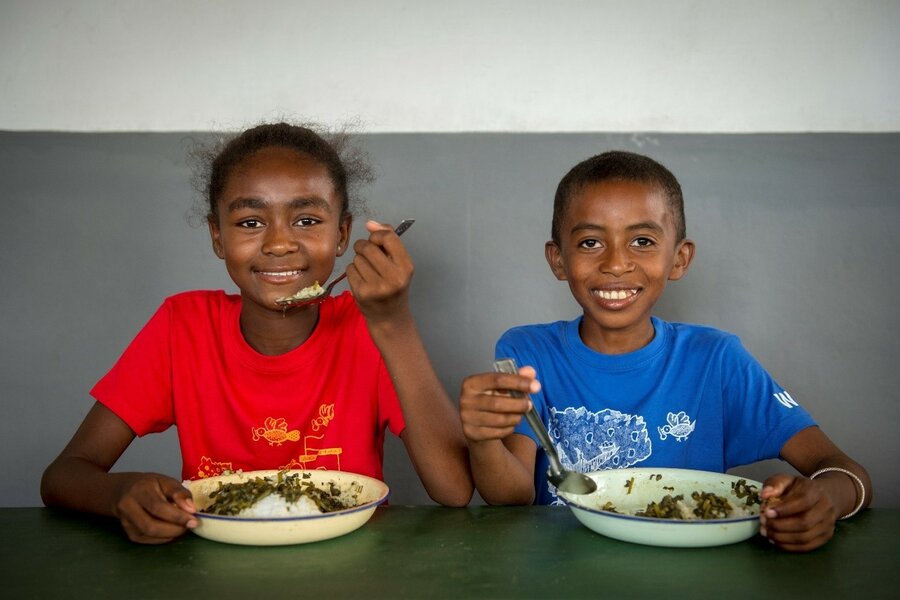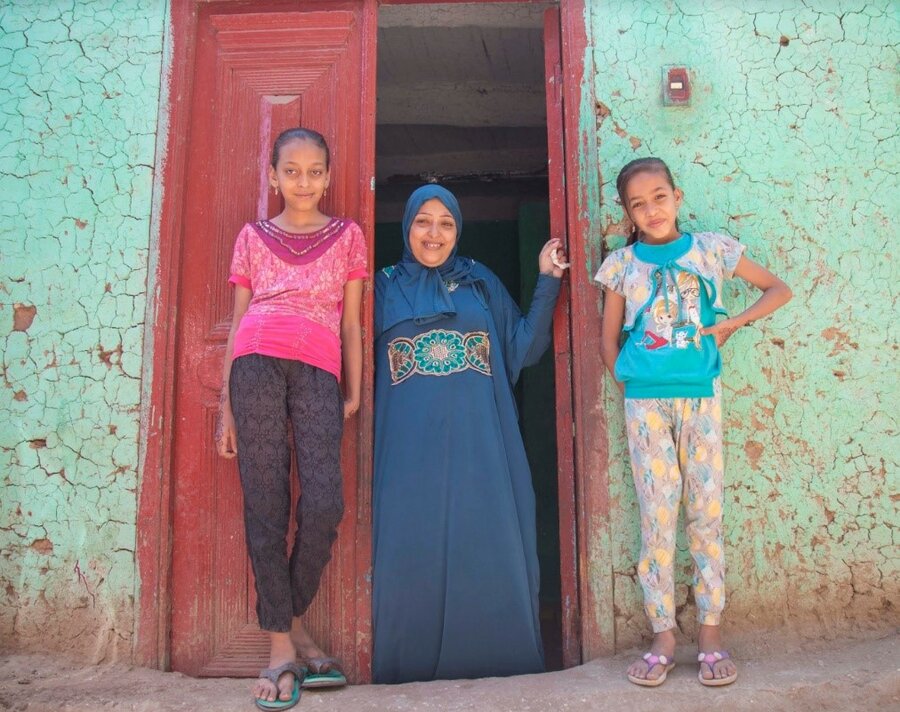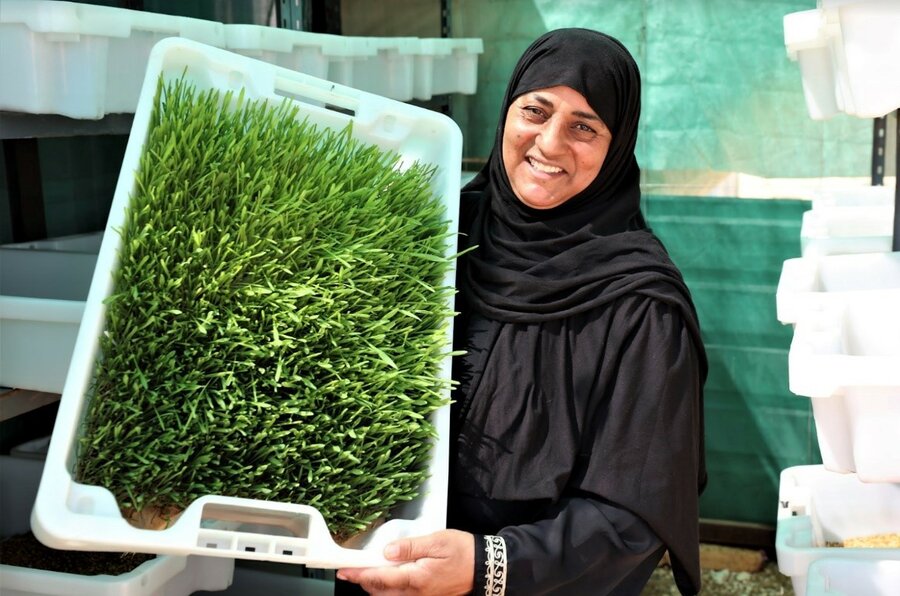50 million meals for families in need
Written by Natalie Ching and Adriana Sahagun
Since the launch of the World Food Programme (WFP)'s ShareTheMeal app in 2015, almost 2 million people have joined the online community worldwide, sharing over 50 million meals — equivalent to US$ 25 million — with thousands of hungry children.
Funds donated through ShareTheMeal provide school meals for children like Sandra and Christophin in Madagascar, where over half of all children under 5 suffer from malnutrition. As part of a cash-transfer project, schools receive money to buy fresh and locally sourced food for school meals, helping to diversify diets and improve enrolment rates. School meals help Sandra and Christophin focus on their education and work towards a bright future.

Donations from ShareTheMeal contribute to critical WFP operations, ranging from resilience building and school feeding programmes to providing food assistance in emergencies.
Last year, donations supported response to natural and man-made emergencies, such as Cyclone Idai which swept through Mozambique, Malawi and Zimbabwe and affected 1.85 million people, and the world's largest humanitarian crisis in Yemen which has made over 20 million Yemenis food insecure. Current fundraising campaigns include supporting families in the Central Sahel through emergency food vouchers, strengthening child nutrition in Jordan with hydroponics, and providing school meals to students in Madagascar.
Donations also contribute to funding innovative solutions to address hunger in some of the most vulnerable populations around the world. Here are a few examples:
Micro-loans & trainings in Egypt

Training and micro-loans are empowering women in Egypt to become more self-sufficient. Many Egyptian women struggle to provide for themselves and their families — and yet face criticism for working outside of their homes. WFP is working to change this by providing the mothers of children enrolled in school meal programmes with financial training and microloans to develop businesses, giving them the means to care for their families. Donations from this campaign supported 240 Egyptian women with training and micro-loans to develop their own businesses, ranging from food stalls to poultry farming.
Ayat utilized her microloan to start a hair salon and bridal gown rental business, and credits WFP's support for her business success. "The great thing about this training is that it developed my skills and helped me support my husband in securing the needs of our children. Today, I run one of the main hair salons in the village to help prepare brides for their weddings," she says.
H2Grow hydroponic projects in Jordan

In Jordan, innovative ways of producing food are helping to ensure that some of the most vulnerable families have access to nutritious diets. Hydroponics allows plants to grow in arid environments and uses up to 90 percent less water compared to traditional agricultural methods. The WFP H2Grow hydroponic project enables families to grow fresh grasses to feed their goats and camels. This means not only better quality of milk, but also a surplus that can be sold for profit.
H2Grow provides families with the materials and knowledge to set up their own hydroponics projects, and to ensure their long-term success. By supporting these projects, we can provide 2,700 children with 10 per cent of their daily milk requirements for seven months.
